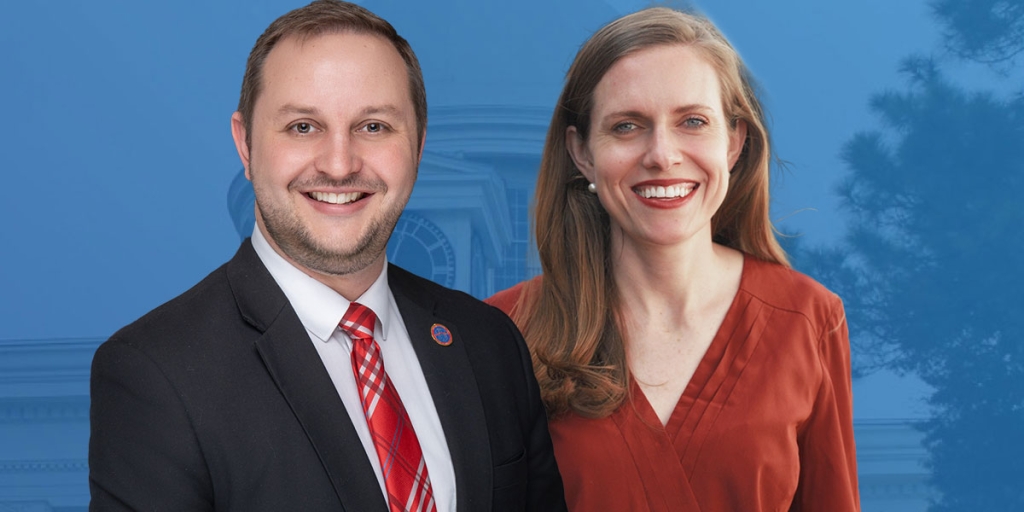
Listen to the 10 min audio
Read the transcript:
TOM LAMPRECHT: Harry, anyone following the news realizes that the House Judiciary Committee had somewhat of a firestorm last week when Rod Rosenstein, the deputy attorney general, came before that committee.
There was much discussion over what appeared to be partisanship within the Department of Justice and the FBI. As a result, representative Jim Jordan asked Rosenstein, “How can the American people trust their government?”
Rachel Botsman writes, “Without trust, society cannot survive and it certainly cannot thrive.”
Harry, are we at the point in our nation where there is justification for the American people to have some distrust of the federal agencies that are supposed to protect them?
IN GOD WE TRUST
DR. REEDER: Now, a lot of people, Tom, are going to expect me to make the argument, “Yes. They are right so, please, let’s trust the government.” That is not going to be my argument.
A society cannot function if it cannot trust its foundational institutions and government is one of those but my answer is not, “Trust the government,” – my answer is we need a government that’s trustworthy.
One of my favorite sign was in a little general store that I used to pass going up to the mountains for little study breaks, they had a sign that – everybody has seen it because it’s at service stations – and it said this: “In God we trust. Everybody else, pay cash.”
One of President George Washington’s great desires was that the nation would adopt as its motto, “In God We Trust.” That’s why he added, “So help me, God,” to all vows that he would take because he put his trust in God and then Abraham Lincoln was converted in 1863 under the ministry of Dr. Phineas Gurley at New York Avenue Presbyterian Church – a process that had begun with the ministry of a Pastor Smith in Springfield – and he eventually commented to his pastor and others that he would love to see that wish fulfilled and, actually, in a sermon documenting his conversion in the 1950s, two elected officials heard that.
Officially, today, “In God We Trust” is now our national motto. That’s where I am. My trust is not in the government – I trust the Lord – but I want a trustworthy government.
TRUST MUST BE EARNED
Now, how do you develop trust? I really hope our listeners capture this – Tom, I think this is important. I am going to pray for my government and elected officials. I am going to give the honor due to them. I am going to obey the civil authorities as long as they don’t do something that requires me to disobey the Lord.
I do not believe that Caesar, my government, is Lord. And I going to ask them, “Be trustworthy. Earn our trust. We do not automatically give you trust – you have to earn our trust. We will give you the appropriate respect that you’re supposed to do, we will pray for you and we will give obedience as long as our obedience does not cause us to transgress the word of God.”
So how do you develop trust? How does a parent live so that his children not only respect and honor them, as the commandment says, but can trust them?
We have a wonderful prison ministry and we actually have a seminary and planting a church in a prison. Some of the guys I meet are called “trustees.” They had to earn that position where they were now trusted by prison officials.
HOW TO BE TRUSTWORTHY
How can we do that? I believe there are seven things that have to be done in order to be trustworthy and this is what needs to happen in our government:
- Our government officials need to have character that earns trust. They do the next right thing.
- Tom, character, then, needs to have consistency. Not only do you do the right thing, but you keep doing the right thing.
- Consistency that embraces transparency is the next point. If something bad has been done, you don’t cover it up – you confess it up. You own it.
- You seek and embrace accountability. You will be accountable to those that are over you and to those that are alongside of you and to those whom you represent.
- Clear communication – you communicate with clarity. You don’t just say, “Well, it depends on what ‘is’ is.” You don’t parse words. You don’t try to be technically accurate, but you’re not truthful. Truthful people don’t just say the right things, but they say it to be understood with your intention of clarity.
- Accessibility – you make yourself accessible.
- Respect – you respect your institution, you respect the law, you respect your vows and you respect the people.
We want character, consistency, transparency, accountability, communication, accessibility and respect. We give respect when people act respectfully to the institution, their vows, and the people that they represent.
This is a matter of the soul of those whom we elect so that they are not corrupted by power. They don’t take the power that allows them to occupy their position of authority and use it for, as we’ve seen, sexual conquests and financial gain. They say no to that and they demonstrate their trustworthiness through this.
THE CHURCH MUST LEAD THE WAY
Tom, one of, I think, the greatest – the most important – shaping institutions of the culture is an institution that isn’t on the mission to shape the culture – but if it accomplishes its mission, it does shape the culture consequentially – and that is the church of Jesus Christ.
Fifteen of the 17 qualifications for an elder deal with character and then we need to be consistent, we need to be transparent, we need to be accountable, we need to communicate with integrity and clarity, we need to be accessible, and we need to be respectful in how we handle God’s word and God’s people.
And then, as a church, we begin to disciple people, some of which become elected officials who go into the body politic and then function in a way that we become trustworthy. I am grateful whenever I see that.
Therefore, to the government, it’s not the government we trust – it’s in God we trust – but I also want you to know we want a trustworthy government. We don’t get a trustworthy government through simply our system. Our system was set up by the founding fathers to facilitate the seven things I just said. Our system was set up to have elected officials of character who are consistent – that’s why they have to keep coming back up for election; who are called to transparency – an open government and a government of sunshine; who are accountable – that’s why they are called to communicate regularly and live among your people, not living in the Washington bubble; then are accessible; and then are respectful.
That’s what I long to see and want to see in our government. Yes, you can’t just drain the swamp because you’ve got to fill the lake. And that’s what we need to fill the lake with but I even more long for the greatest institution – the one that’s heading for eternity – and that is the church of Jesus Christ, that we, on-mission, on-message, in-ministry, will demonstrate that same trustworthiness beginning with leaders.
And, God, would you by the Gospel, let it begin with me.
Dr. Harry L. Reeder III is the Senior Pastor of Briarwood Presbyterian Church in Birmingham.
This podcast was transcribed by Jessica Havin. Jessica is editorial assistant for Yellowhammer News. Jessica has transcribed some of the top podcasts in the country and her work has been featured in a New York Times Bestseller.
Podcast: Play in new window | Download
Subscribe: RSS












